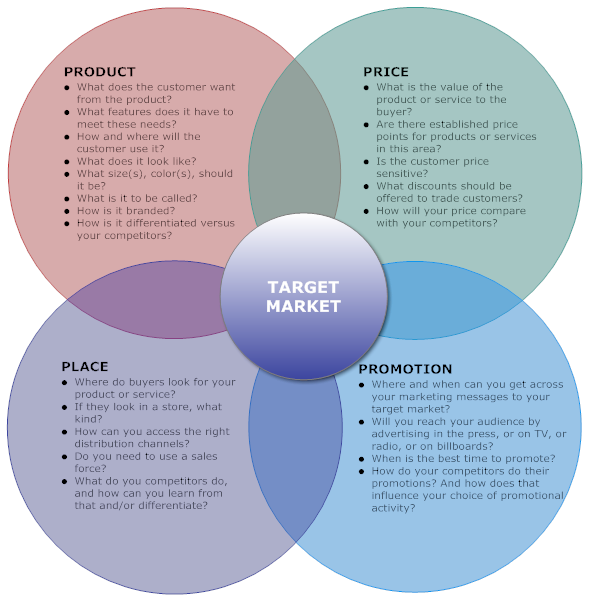Global marketing - Application and adaptation of the marketing mix (4Ps) to global markets - 4.3.1.
Marketing mix - The set of actions, or tactics, that a company uses to promote its brand or product in the market. The 4Ps - price, product, place and, promotion - make up a typical marketing mix.
The marketing mix needs to be applied carefully in order to meet the requirements of customers in all markets, which is a challenge for a business. Ideally, a business would want to market the same product, at the same price, using the same promotional techniques and distribute and sell through the same outlets. However, this might have to be changed to cater for the different needs of national markets.
PRODUCT
A firm will need to consider whether a standardised product can be sold on all global markets. Then it can build up an associated product range. This might be easier for a technological business as opposed to a food business.
PRICE
Price strategies that have worked in other economies such as western markets are unlikely to be successful in emerging and undeveloped economies where economic development is low. Therefore, pricing strategies need to be tailored to local customers. In some cases, this means pricing low, such as Coca-Cola's 10p can in India. In other cases, it means pricing high. such as the Land Rover Evoque, selling well in China despite double the UK price tag.
A global standardised price removes the possibility of the product being sold on in a grey market, where people simply take advantage of the difference in price and sell it on e.g. through Amazon or e-Bay.
However, this would not take into account the level of disposable income that people have so might mean that a business is reducing the sales revenue available to it.
PLACE
With developed economies, businesses use many methods of distribution to allow customers to access their products and services. For example, customers shopping for groceries in the UK can place an order on their smartphone and have their items delivered to their front door. Businesses entering technologically advanced markets, therefore, need to ensure they are continually providing new methods of distribution as part of their marketing mix. In emerging economies such as India, the grocery market is dominated by millions of small, independent stores. Furthermore, the country's infrastructure would make it hard to offer the delivery speed of Amazon in the US and the UK. This means Amazon needs to adapt its global distribution strategy to local variations in the market.
PROMOTION
This needs to consider local technology and customers' sophistication and preferences. In Germany, traditional channels such as Tv are still the preferred medium, while in the UK, social media has become a crucial tool for promoting products. But China has gone digital even faster than the UK - in China, e-commerce and social media are critical.
Though global promotion will help a business achieve marketing economies of scale, it may not take into account the local customs, cultures, and preferences which might decline the amount of sales of the product.

Comments
Post a Comment